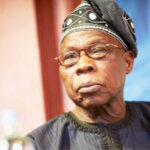How do I start writing about death – that inescapable adversity that afflicts every soul at the designated time – of a personality whose life could best be defined by his immense contribution towards achieving perfection in all fronts of human life – be it spiritual, social, economic or even political. However, it is practicable to cover and sketch some salient issues that will do justice to facts and history. It is without any iota of doubt that I rank my father, Malam as we fondly called him, among the most important people of his time which, to me, is also our time. His moral probity, intellectual capacity and ability combine to make him a source of inspiration, a role model, to not only his family members but many generations to come.
It had been a tradition in our family that every blessed morning, we would go individually or collectively to his apartment and greet him and seek for his fatherly blessings before departing for our various places of endeavours.
Malam had been sick for a long time on intermittent basis. I still remember that day – the 24th of May 2004 – when I went to greet him before leaving for school. He responded to my greetings in a very low voice. Drawing from experience, I was not in any way moved by the circumstance, because such scenario had played out on several occasions but Malam always bounced back. Thereon, I left home for school. When I came back from school, I was already late for Islamiyya so I had to rush, believing that after closing from school, I could still go to find out his health condition.
Unfortunately, what I thought was one of those moments turned out to be a day I’d never forget. After closing from school around 5 pm, on my way going back, I met a friend in our neighbourhood who, perhaps thinking that I might have heard what had happened, told me ‘Sai dai hakuri’ (patience is necessary). I suddenly felt tears rolling down my eyes, the world seemed to have become stagnant.
Various thoughts took over my mind. I started thinking of what life would be without Malam – I actually thought it would be impossible because to my conviction, no one could impeccably step into his shoes in terms of the love, care and sound moral training we received from him.
Malam was a great father, one that embodied all the good things that make a person worthy of being the head of a family. He was a disciplinarian and had zero tolerance for indolence, decadence and all other forms of social vices. He maintained an uncompromising stand on all components of negative behaviour. Whenever it was reported to him that one of his children had been accused of committing a reprehensible act, Malam wouldn’t take it lightly. He dealt with us in a manner that we would not fail to do what is right simply because he was not around.
In terms of keeping up to his family responsibilities as the head, he was very indefatigable and steadfast in discharging his family duties. He took any exigency bordering on his family with utmost seriousness and unwavering devotion to carter for it. Except for those who deviated from the path of hardworking and perseverance, Malam gave his all for his children to achieve success in this life and the hereafter. I could remember that the easiest way to get some amount of money was to come up with a lie on schooling demand.
Malam had on several occasions succumbed to those antics played by his children deliberately, not for any reason but to show them the sanctity of education as the best legacy one could
leave for his offspring. He always encouraged us to study hard and be part of the good process of change in the society.
Malam was very good to his wives; whatever concerned any of them would be treated as something that concerned him directly. He was nice to his in-laws. He respected his wives and always consulted them just to carry them along. It was through these acts of kindness that he commanded a lot of respect from his wives. What a sense of humility!
It is obvious that Malam also had a smooth relationship with his neighbours. He had no single feeling of animosity for any of his neighbours.
Malam’s jovial disposition was not limited only to his neighbours or his family members, but to any person who could have access to him regardless of social, economic and political status. He had an ascetic life, characterised with full contentment and unreserved gratefulness to Almighty Allah for His numerous favours upon him. He never compromised his integrity for things of earthly benefit, but chose to always try to protect his reputation and sanctity of his status as an Islamic scholar by being fair to every segment of the society.
I still remember the day I was taken to Gummi College in Kaduna. The proprietor of the school was a close associate with whom he maintained a respectful relationship. Some members of the staff of the school suggested that I take the advantage of the AAC scheme (a scheme made for family, friends and associates of the proprietor where tuition fees are waived). But Malam resisted, disclosing that since he had the financial strength to pay the school fees, so let it be.
As a scholar, which he was prominently known as, Malam was circumspect in discharging his scholarly obligations. In conducting his annual Ramadan tafsir at Sultan Bello mosque Kaduna, he never entertained inflammatory statements and issues that are totally at variance with the spirit of the lecture or the month in which it was delivered. He always tried to remain within the defined territory of his obligation which is to explain to people what the Almighty Allah revealed to mankind through his noble messenger (S.A.W). He usually concentrated on things that mattered most to the society and which will bring enormous peace and harmony in the society.
Malam had unreserved respect for scholars in general, even with those he was perceived to have divergent inclinations. He believed that nobody knows it all. What mattered most to him was to tell people what he knew and explain same to them to the best of his ability.
Shuaibu is a final year student of Law at Bayero University Kano.
 Join Daily Trust WhatsApp Community For Quick Access To News and Happenings Around You.
Join Daily Trust WhatsApp Community For Quick Access To News and Happenings Around You.


